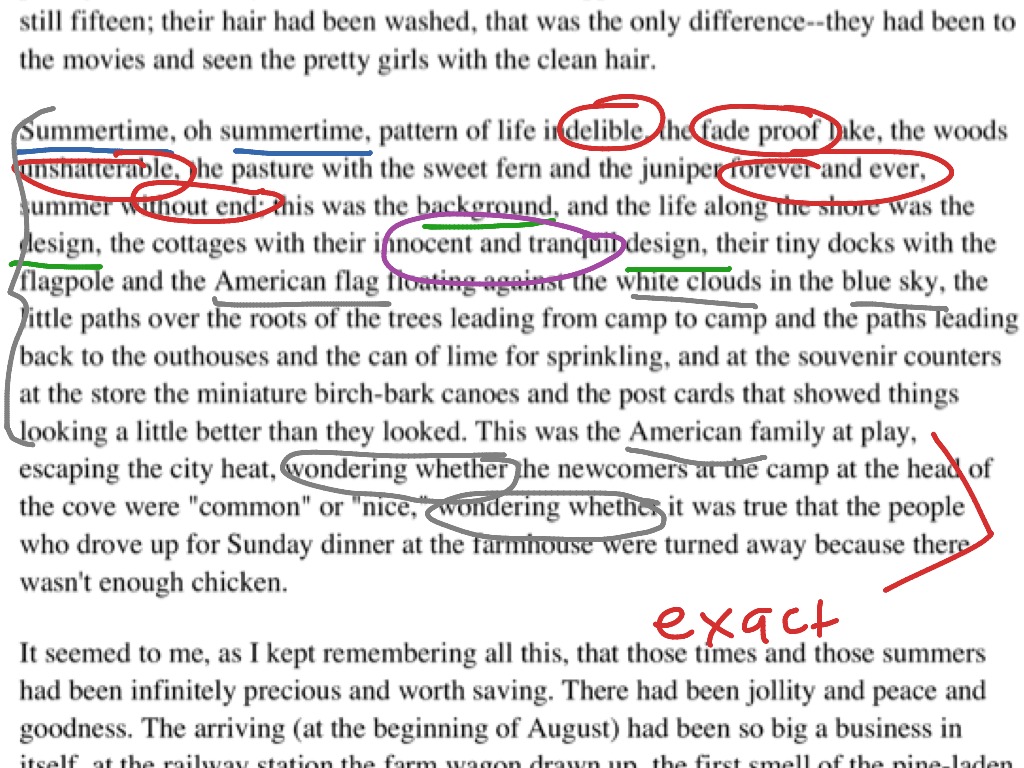


“Once More to the Lake is a descriptive anecdote that tells of the experience a father has while revisiting a childhood memory with his son. White’s language is relatively informal, although he does use educated examples, like a reference to Ubangi tribal rituals, and this allows the reader to envision chatting with an old friend and sharing experiences. The entire purpose of the anecdote is to portray the confusion a father experienced while visiting the lake with his son. The absence of the “passage of time” (paragraph 7) for White is the major source of the conflicted feelings of being his son, being the young boy that had visited the lake, and being his father. As he buckled the swollen belt suddenly my groin felt the chill of death” (paragraph 13). I felt dizzy and didn’t know which rod I was at the end of” as well as “I watched him, his hard little body, skinny and bare, saw him wince slightly as he pulled up around his vitals the small, soggy, icy garment. I looked at the boy, who was silently watching his fly, and it was my hands that held his rod, my eyes watching. There had been no years between the ducking of this dragonfly and the other one–the one that was part of memory. These illusions continue while they are fishing at the lake, “I lowered the tip of mine into the water, tentatively, pensively dislodging the fly…. As White and his son spend more time at this lake, the more confusion he feels as White states “I began to sustain the illusion that he was I, and therefore, by simple transposition, that I was my father” (paragraph 4).

He also refers to fond memories with words like “peace” (paragraph 10) and “jollity” (paragraph 9) and short anecdotes, a sentence or two long, of activities that he used to participate in while there. White emphasizes, over and over again, the lack of change at the lake everything still looks the same and smells the same as he remembers it. “Once More to the Lake” tells of the conflicting feelings that a father possesses as he takes his own son to the lake he always visited as a boy.


 0 kommentar(er)
0 kommentar(er)
